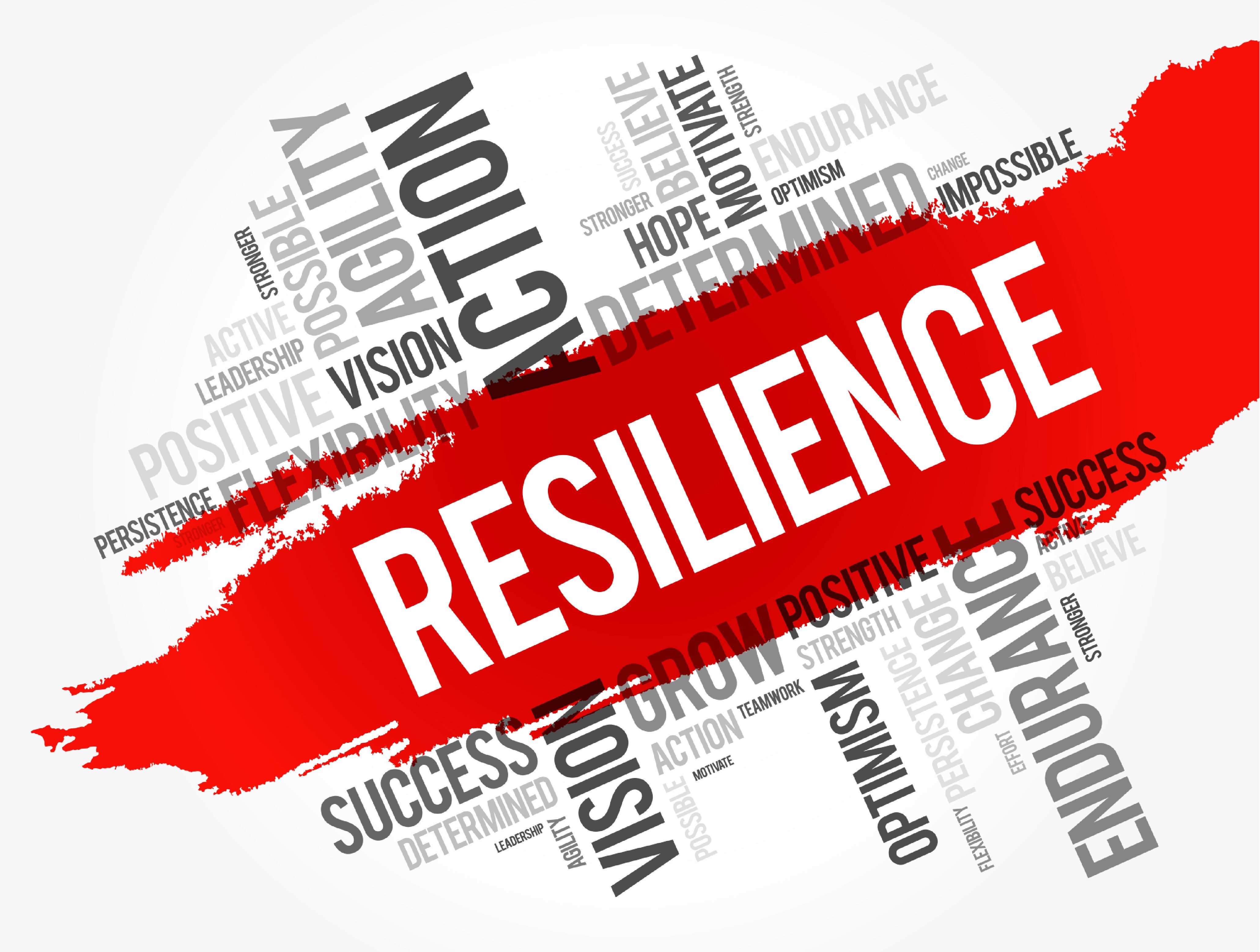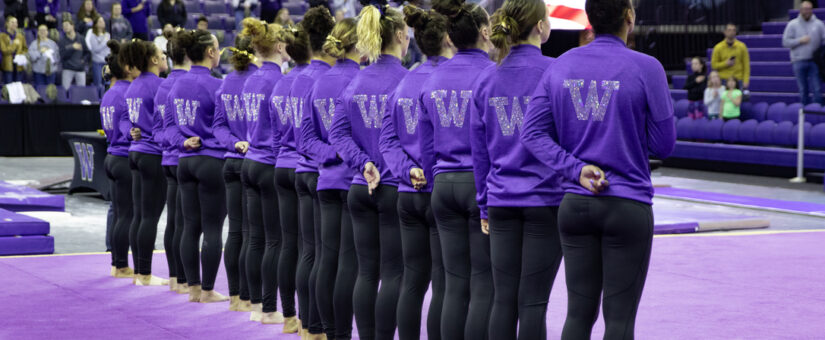
Dealing With the Loss of a Season
If you are reading this post, there’s a very strong chance that you are an athlete, or parent of an athlete, like thousands of others across the world, who have just had your season cancelled, seriously altered, or postponed by the growing coronavirus pandemic.
As a certified mental performance consultant of the Association for Applied Sport Psychology, my heart is very heavy for every athlete who’s season just went dark. For 27 years I have worked in college athletics as either a coach or mental performance consultant, and yesterday’s season cancelling news was one of the hardest days I have experienced, as seen through the eyes of the athletes with whom I am working. I am on staff with a highly ranked NCAA D1 Women’s Gymnastics Team and Thursday was just gut wrenching as we sat in a circle informing our athletes that our conference, and the NCAA, had just cancelled our season, our championships.
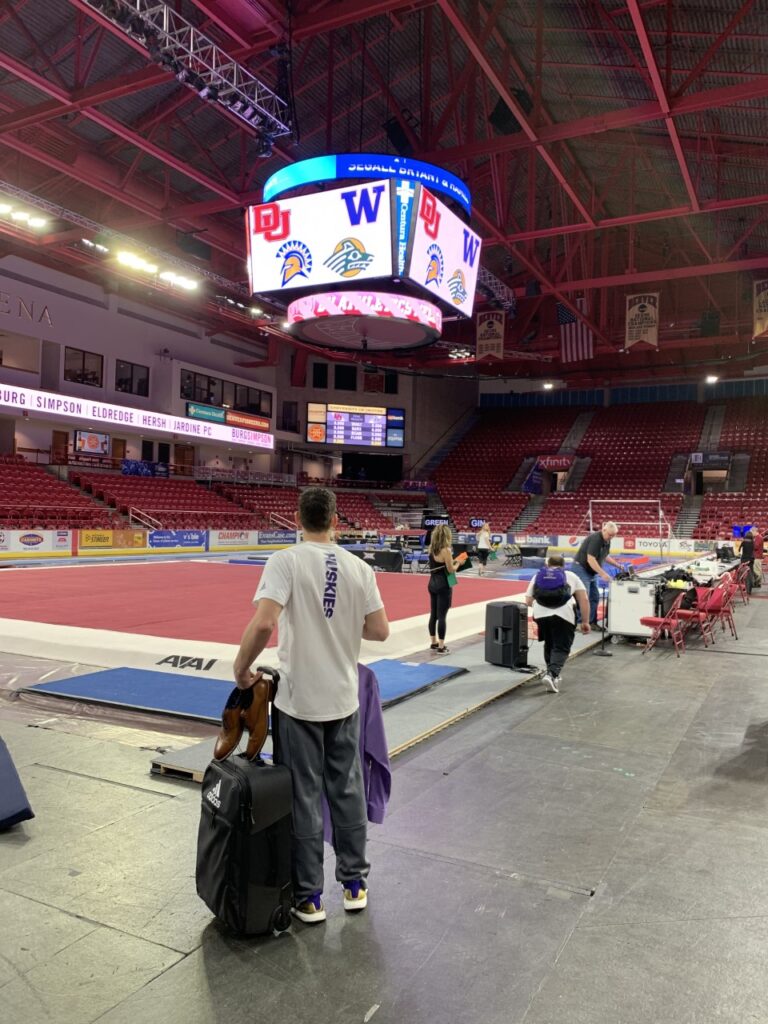
There are athletes on our team who are ranked in the top ten in the country, have scored perfect 10’s this season, and have been giving their all to help our team excel for 4 + years. For a couple days we thought we would compete in empty arenas only in front of our families. That seemed hard, but we knew we could handle that challenge. Losing out on the whole championship portion of a season is not just a challenge, it’s a huge blow that is indescribable. Thousands of amazing athletes will now not have a chance to show off a few more times all they’ve accomplished through dedicated work over 10+ years. There are seniors who will miss out on Senior Day, elite athletes who lose the chance to compete in a few last meets and put a bow on their athletic careers. I’ve never felt at such a loss for words to help an athlete. It’s a uniquely heartbreaking development for those who don’t understand the structure of an athletic season; the buildup, the sacrifice, the delaying of gratification, the investment of months we spent working to hone abilities to be our best. Those who don’t compete anymore, haven’t ever competed at a high level, and those who don’t care about athletics won’t get it. But we do.
Functionally, this involuntary loss of the season is best viewed through the context of grief. For most of us the context of grief is that of death, but for many athletes yesterday, the loss of their careers feels a whole lot like a death. In general, athletics is not particularly literate or well equipped about grief/managing loss. We tend not to have the language/skills to effectively deal with it ourselves or help others we work with. We often rely on platitudes of ‘keeping working’, ‘you’ll be back at it in no time’, ‘tomorrow’s a new day’, etc. For many athletes this past Thursday, and for the weeks to come ,feelings of confusion may reign. Empty sport platitudes won’t help. The range of emotional experience is far and wide with this sudden loss of a season.
Around the world, there’s going to be epic loss as a result of this virus (some temporary, some permanent) …careers, awards, championships, hopes, dreams, lifestyles, financial stability, social circles, friends, loved ones. This is akin to dealing with a massive number of athletes who may have career ending injuries. It is rapid and involuntary. Some will rebound well, and others will have more difficulties.
Without a doubt, this is devastating to most athletes. At the very least it’s incredibly confusing. What may be helpful is to consider thinking about all of this from the perspective of Elizabeth Kubler-Ross’s stages of grief (denial, anger, bargaining, depression, acceptance). I doubt many, if any athletes, are in denial about what is happening and are likely in one of the other stages. Ideally, in time, athletes will get to the point of acceptance. But there is no timetable for this. They need to just to know it’s okay feel whatever they are feeling near others who will listen, support, and not try to “talk them out of” how they feel about losing their seasons.
Athletes are going to feel that they’ve been stolen from, robbed of an opportunity. Peers will feel heartbroken for their teammates who are moving on – seniors for example. It’s OK to feel this. It’s natural, and it’s justified. Don’t let anyone tell you not to feel the pain of this loss. This cancellation means that we will all lose history in some way. History from the sport, a handful of great scores, or team results, and history from our personal narratives. History is a hard thing to lose.
I suspect athletes are going to feel like their efforts and their sport is being trivialized, weighed against someone else’s life. If we are thinking from a socially responsible perspective, then I suppose this is true in many senses. None of us are placing an athletic competition above someone else’s health. Just because a gymnastics meet isn’t the most important thing, doesn’t mean it doesn’t matter a lot.
THE CORONAVIRUS CAN’T TAKE AWAY THE STRENGTH WE’VE EARNED
Athletes will eventually look back on the sacrifices they and their teammates and coaches made, the work put in over months with the hope that there would be a chance at an amazing payoff or championship; a payoff now reduced to a brief announcement about indefinite postponements and cancellations. Athletes may feel that the coronavirus has robbed them of an entire season. But it hasn’t.
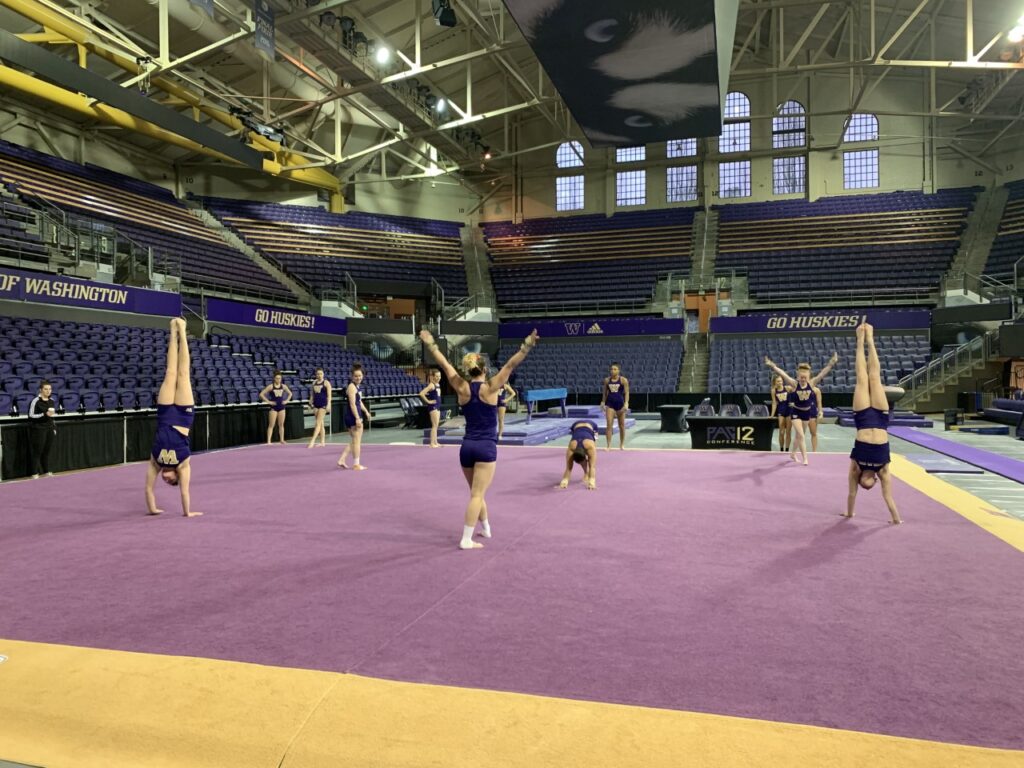
Sport has never been just about the destination. It’s really about the process. The time spent training and pushing ourselves into uncomfortable places so we can grow and improve. Athletics often puts so much emphasis on the outcome – but 90% of sport is what you did to get there.
No one produces incredible results, achieves an All-American Award, or competes for a championship and disconnects it entirely from the season that led up to it. That big moment is the product of hundreds of small process steps taken – days, hours, minutes of growth as an athlete, adding up to who they are at the end of the season.
What matters most is that we all learn how to grow in the process of a season and a career. It’s not how you compete as much as who you are. Though you may not see the complete end product now due to the cancellations, the progress and growth earned through blood, sweat, and tears is still there.
When feeling such deep levels of disappointment, it’s a normal instinct to look for someone or something to blame. In the short run, it’s easier to externalize our anger, to channel our negative emotions somewhere outside our own heads, where they can’t continue to loop in our minds.
Don’t blame your clubs or your state high school leagues. Don’t blame your athletic departments. Don’t blame your conference. Don’t blame the NCAA. They’re not trying to hurt you – they’re trying to protect the people you love.
You might be willing to risk getting sick to compete. I believe most athletes would be. As a physically fit athlete in your teens or 20’s, you probably feel the virus doesn’t pose a significant threat to you. But the massive and sweeping responses to the coronavirus outbreak aren’t there just to protect you – they’re there to protect the ones especially at risk, particularly older people or those with chronic health conditions or weakened immune systems.
Seasons were canceled to protect your grandparent, who at 80 years old has a 15% chance of dying if she contracts COVID-19. The meet was canceled to protect the 60-year-old judge, who wouldn’t miss the Pac 12 Championship for the world, but, as a diabetic with an increased mortality rate from COVID-19, would be risking her life to be on a crowded arena floor for you on meet day. The meet was canceled for the parent with the compromised immune system that would give up everything to see you stick that landing one more time.
The people and organizations in charge had to make gut-wrenching calls to cancel seasons and they did it knowing how badly it would hurt you. They did it for the people you care most about. Don’t blame them, they made rational decisions. They didn’t take away your season. Coronavirus did. This virus is the latest in a long line of things that have tried to rob you of the joy you can get from sport. Other illnesses have tried. Snow storms have canceled your meets and practices. Bar apparatuses have broken, budget cuts have threatened, injuries have flared, surfaces have been unsafe.
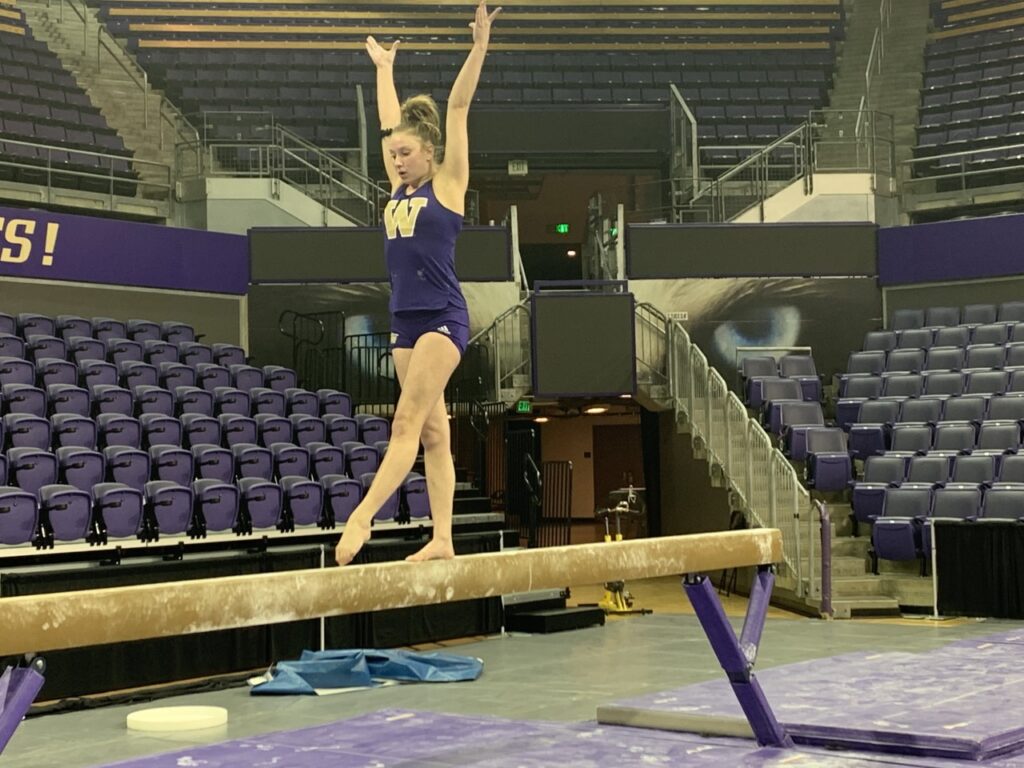
But sport always comes back strong. You are still going strong. Nothing else has beaten you, nothing else has taken away the things you’ve gained through sport. I’m telling you that everything you’ve earned, for all the ways that you are stronger through your involvement in sport, you are a better person. Everything you’ve overcome in the past has made you stronger, has made you the better, tougher, a more well-rounded person you are today. The pain you feel now is only going to make you better in the future.
One purpose of sports is to help develop life skills for the really important stuff. This is really important. Coronavirus hasn’t taken sport away from us. Our tireless hours training and competing has prepared you to overcome coronavirus.
When competition eventually resumes, and it will, we’re going to see athletes doing great things. We’ll see a group of athletes, and people, molded and shaped by adversity into a stronger, tougher, more resolute group than they would have been otherwise.
Coronavirus can’t take away the season that you had. Only you can take that away. Feel what you need to feel now. But in the future, please give yourself permission to feel pride in all you accomplished as an athlete this year. You have done things most humans can’t do. You have persevered through countless challenges most would have run from. You are strong. You are resilient. You are amazing! Be proud of the person and athlete you have become.
- Getting Your Intensity Level Right - March 17, 2025
- Building a Functional Resilience Plan is Vital to a Referee’s Success - February 18, 2025
- sport in a pandemic: Crisis or opportunity?Chapter 4 - December 4, 2020


